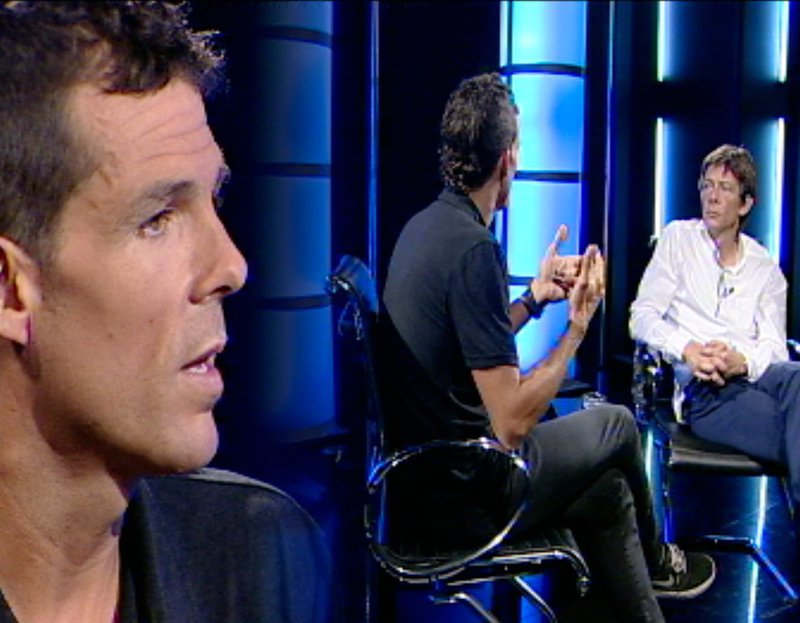Interview
Telling stories with music
Saxophonist, Llibert Fortuny Every Monday at 6.30pm, El Punt Avui TV airs the interview series Going Native. This week, Neil talks to saxophonist and composer Llibert Fortuny about his music and career.
When did you start with the saxophone?
When I was a kid. I first played the piano and acoustic guitar. Then, in a local music shop I saw an electric saxophone; it was like a toy but I knew that was what I wanted to play. So, I saved up and bought it. That was the beginning. I liked it and later bought a real saxophone.
And when did jazz enter your life?
I started in the conservatory here in Catalonia and did classical studies. When I finished, I had to decide between classical and jazz. As the saxophone is iconic in jazz music, I decided to play jazz; with all the improvisation it was so fresh and free. So I applied for a scholarship, got it and went to Boston.
So the jazz came later?
At that time there was a lot of jazz in pop music, in TV commercials, and so on. Once I had a saxophone people started giving me CDs from the likes of Charlie Parker. I didn't know what it was and hadn't imagined you could do that with the instrument. So I started there. I guess I did it the other way around.
How did you find the US?
It was amazing, the best time of my life. I had no worries: no phone, no car, just an apartment and a saxophone, and I practised every day with people from all over the world. It was amazing, and Boston is a great city.
Is the sax a difficult instrument to master?
The saxophone is a good wind instrument. A lot of people think it is a brass instrument but it has a reed in the mouthpiece, like the clarinet or oboe. The other thing about the saxophone is that there are different types: you have sopranino, soprano, alto sax, which is what I play, I play tenor sax, too. There is a big family and they are tuned differently. For example, guitars and pianos are tuned in C Concert, but saxophones are tuned in B Flat or E flat, which at first can be a problem. And then, in jazz, the saxophone is a melodic instrument, while the piano or guitar are harmonic instruments, which means they can play chords. But in jazz, the saxophone is like a singer, providing the melodies and the solos, which is another thing that makes the saxophone special.
Would you recommend parents to start their kids on the saxophone?
All instruments can be amazingly difficult when you get to a certain level. Saxophone is quite easy, as you can get a sound of it in the first lesson. So I think the beginning can be hard but I wouldn't recommend one instrument over the other. The important thing is that the kid chooses what he wants to do. All instruments have great things about them and I think it's great for kids to play an instrument.
You have done a lot of collaboration in your career. Is that something you look for?
If you live in Catalonia, which is such a small country, you have to review your stuff because the audience is often the same people. I like all music, not only jazz and so I like playing with people from all over, but collaboration was something that just happened to me.
Has your experience working with other musicians helped your composing?
I have written for people who have asked me to do it for projects, for the Patum in Berga or now I'm preparing a kids show in the Auditori, which they hired me to do the arrangements. For me it is a great experience.
Did you start composing early, or did it come later?
It came along later. At the beginning you just want to play. And then once you get into the studio and record, you realise you have to progress and try to make your own tunes. If you have people who follow you, they want to see what else you have to say. Writing music is a great way of expressing what you want to say.
How do you go about composing?
When I compose I start with a melody, and then I do the harmony or the rhythm. It can be anything that is going through my mind at that time. Music, and especially jazz, is affected by what is happening to you at that moment in your life. I always try to do that even if my music doesn't have lyrics. I always try to say something, to tell a story even if it doesn't have lyrics.
It's festival time. What have you got coming up?
There are always a lot of festivals but here the good thing is the weather. Right now I'm going to Tenerife with Gary Willis, who is a great bass player from the States, and then I'm going to play in Girona at the end of July, and then I'll be playing in Cerdanyola with Manel Camp, a great pianist. I'll also be playing with my new band, The Gas Band. Hopefully this summer we'll record a CD, which I want ready for next year, so hopefully we can play around. We are talking to a festival here in Barcelona that I've played at in the past few years.
Leave a comment
Sign in.
Sign in if you are already a verified reader.
I want to become verified reader.
To leave comments on the website you must be a verified reader.
Note: To leave comments on the website you must be a verified reader and accept the conditions of use.

